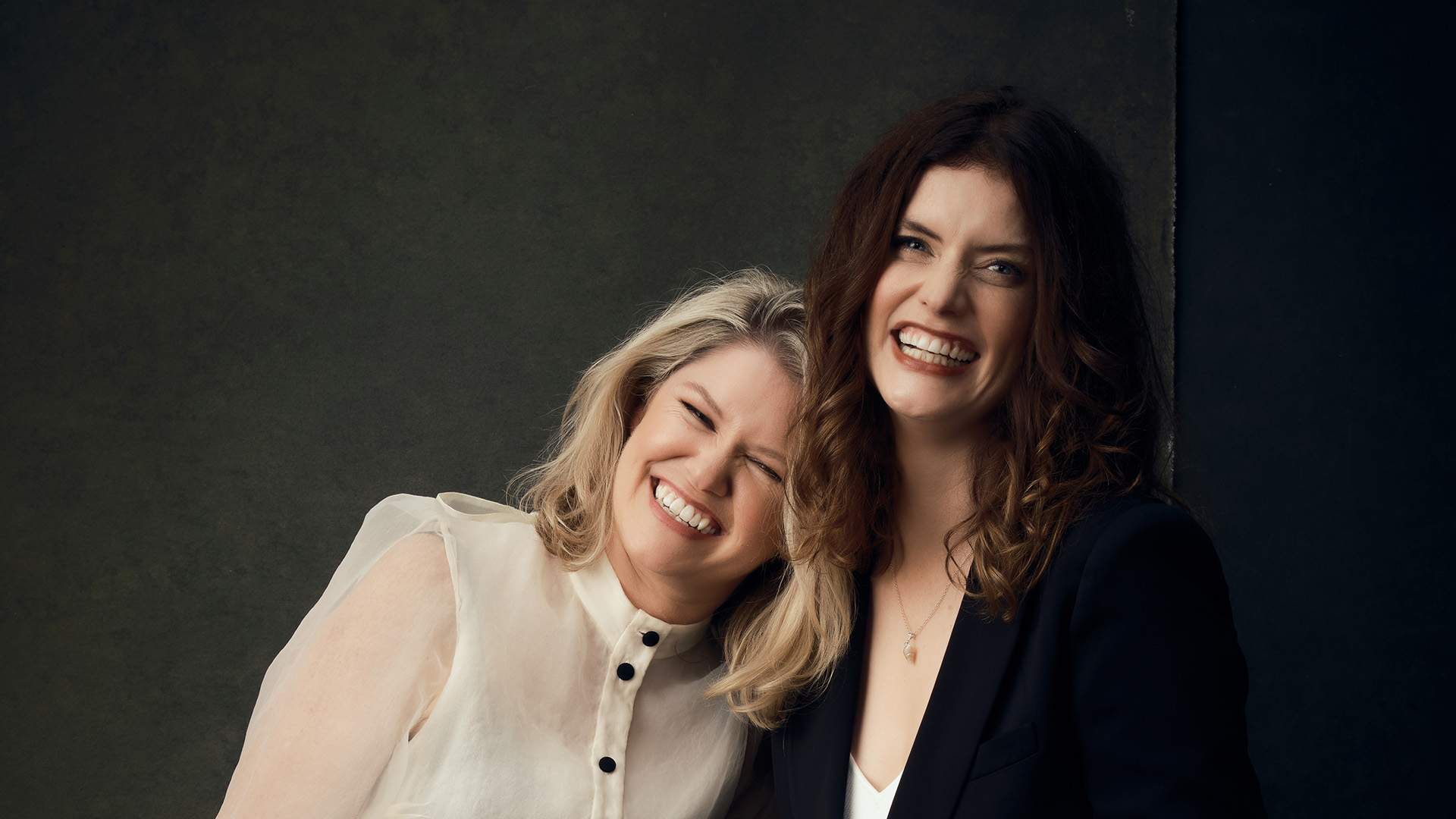How Australia's Comedy Queens Made "Funny Broadchurch": Kate McLennan and Kate McCartney Talk 'Deadloch'
"We're just terrible at writing men, so it was easier just to have a dead one instead of writing dialogue for him."
They like jumpsuits, one name and living in the same suburb. That's The Kates' quick description of themselves, and of their fame as The Kates, as they've been known ever since The Katering Show proved the funniest thing on the small screen in 2015. Kate McLennan and Kate McCartney didn't start their careers together, but they've become Australia's comedy queens by proving a razor-sharp, whip-smart duo — first while satirising cooking shows in a webseries that was picked up by the ABC for its second season; then by taking on morning television with fellow pitch-perfect two-season parody Get Krack!n; and now with Prime Video's Deadloch, which started streaming its Tasmania-set comedic murder-mystery on Friday, June 2.
"There were so many Kates in the show," McCartney notes of their latest project, which The Kates originally gave the working title Funny Broadchurch. One such Kate: Wentworth and Rake's Kate Box, who plays one half of reluctant detective duo in Deadloch's titular small town opposite The Breaker Upperers' Madeleine Sami. "Kate Anderson was our special makeup effects artist. Katie Robertson, Katie Milwright — Katie Robertson is on the show, Kate Milwright was one of the cinematographers — and we had another Kate, Kate Fox, doing locations," McCartney continues. "It was basically if your name was Kate…" adds McLennan, "then you got a job," finishes McCartney.
Sami "is in the process of getting her name changed to Kate," McCartney keeps joking. "She hasn't started the paperwork yet," pipes in McLennan.
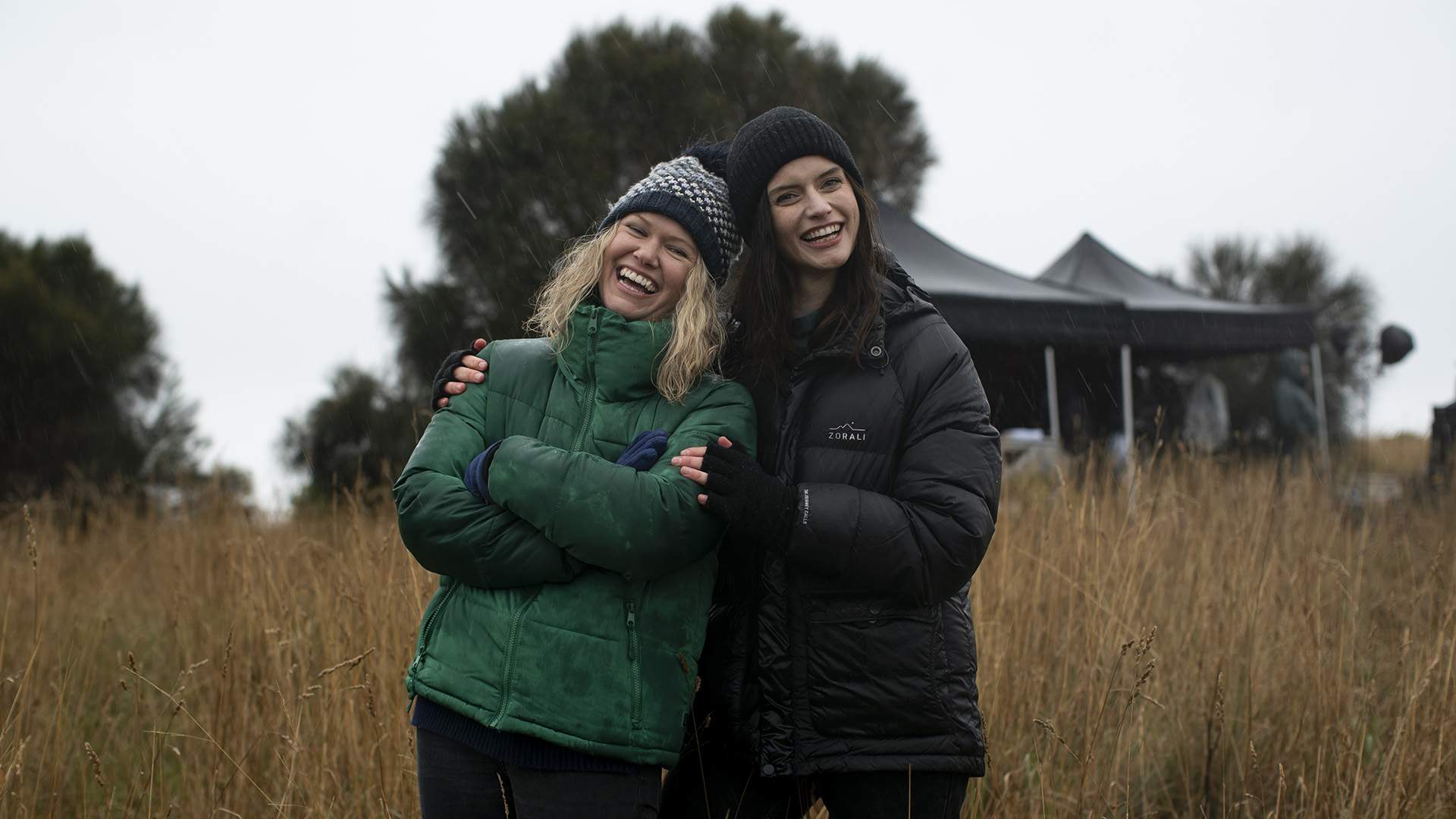
No matter how many other Kates had a hand in Deadloch, the series is instantly recognisable as the work of The Kates. Within seconds of a man being found dead on a beach in the first episode's opening moments, the corpse's penis is on fire. When Box's small-town sergeant Dulcie Collins informs the next of kin, he bellows that he loved him like a brother — but has to be reminded that, yes, the deceased was his actual brother. And when Sami's Eddie Redcliffe blows in like a whirlwind of swearing and Hawaiian shirts, she's the stereotypical arrogant outsider cop, but satirically so. Indeed, with their male victim and female investigators, The Kates gleefully riff on the cop-genre status quo, flip the script to focus on the characters usually robbed of a voice and, although it wasn't originally their aim, balance sidesplitting laughs with making an excellent crime procedural.
Deadloch is also an inescapably Australian murder-mystery series in its Tasmanian gothic look, its excavation of the nation's treatment of its First Peoples and, as frequently dropping from Sami's mouth, its love of cursing. The latter gave rise to The Cunt Essay, The Kates explain, to justify why its use of language couldn't be more ordinary on an Aussie-set show. From responding to the standard treatment of women in dead-girl crime thrillers to getting that homegrown vernacular over the line — and scrapping their own filmed cameo in the series, too — we chatted with McLennan and McCartney about all things Deadloch.

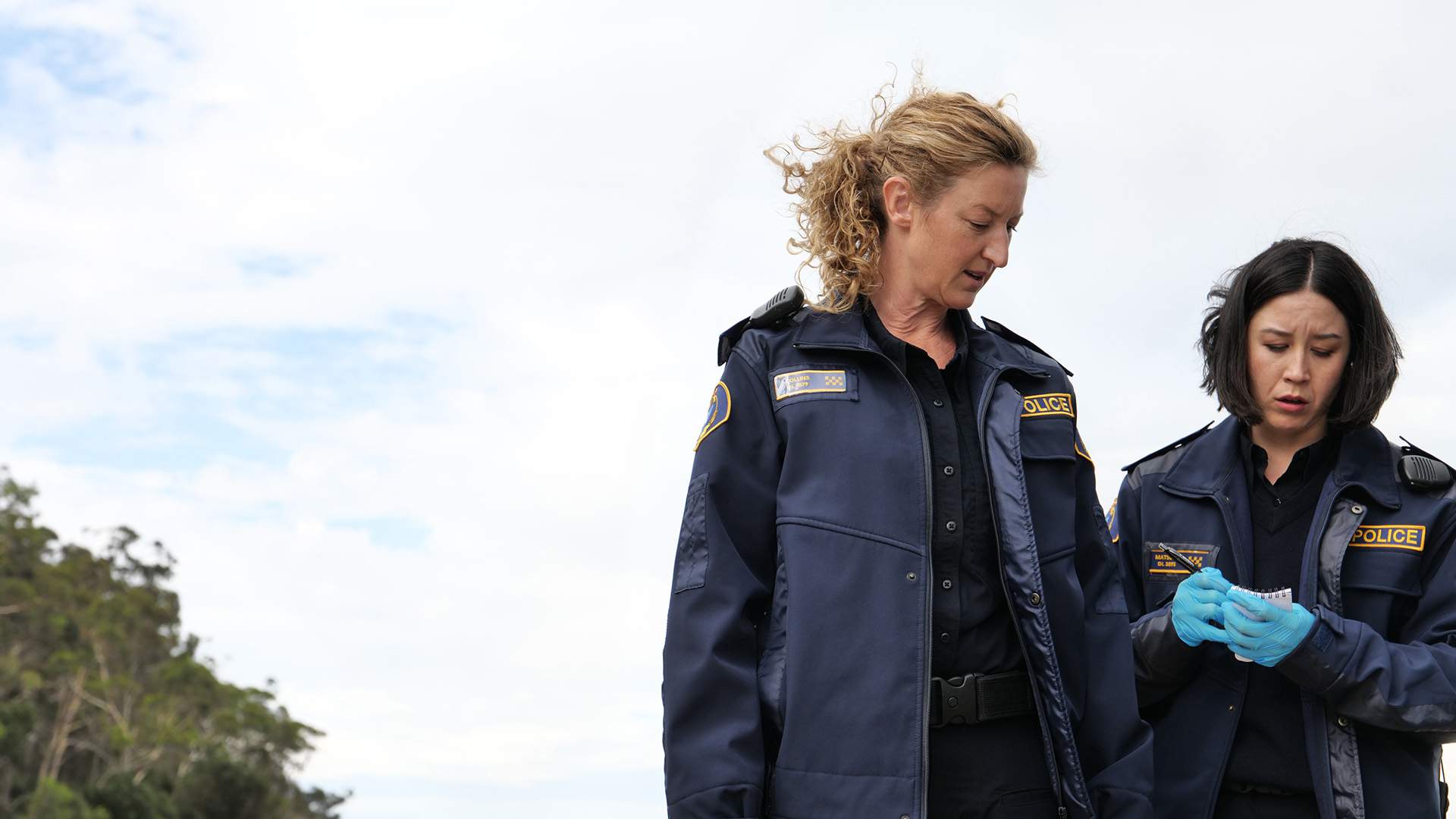
ON THE NUMBER OF DEAD-WOMAN CRIME SHOWS SOMEONE NEEDS TO WATCH BEFORE THEY DECIDE TO RESPOND
McCartney: "Roughly 800, I reckon. I just don't know if there is a single crime show that — if it's not in the first two minutes of a murder show, then you will still eventually see a dead woman."
McLennan: "And once you're aware of it as well, you'd watch them and, sure, they're showing you the body of a dead woman, but they would always show a gratuitous shot of her boob. You would always see a nipple. You've got these very serious detectives standing over a body, and you just don't need to see a blue nipple. You don't need to see it."
McCartney: "There's always that one at the crime scene. But then you go to the morgue and they have another conversation with the forensic pathologist, and rather than putting a sheet up, they're always completely nude on the slab as well."
McLennan: "So we just thought what would be really interesting is if you actually gave those victims a voice. To us, we wanted to know about the backstories of these people that would normally be portrayed as victims in these types of shows.
Also, we're just terrible at writing men, so it was easier just to have a dead one instead of writing dialogue for him."

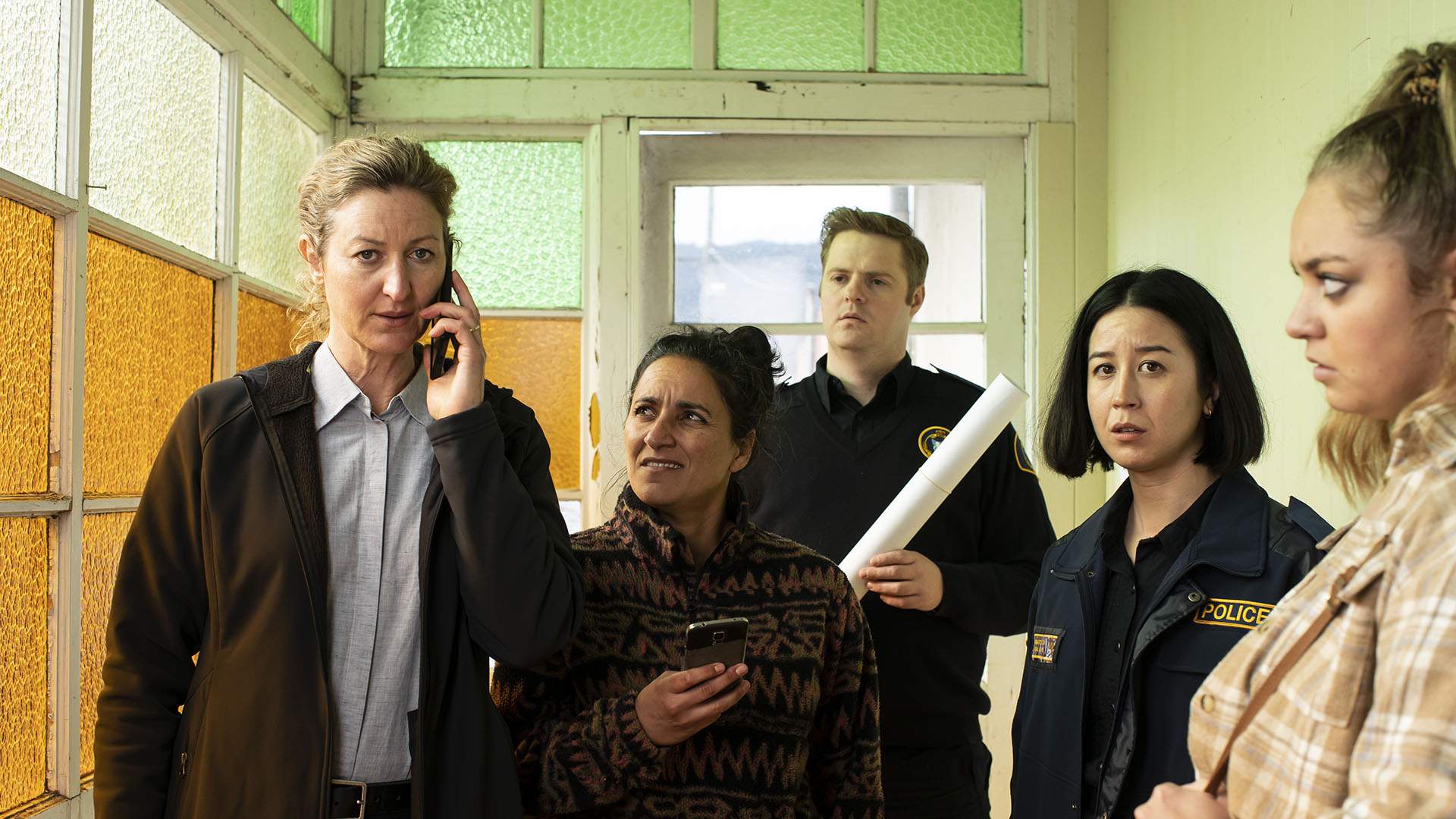
ON DEADLOCH'S STARTING POINT AS "FUNNY BROADCHURCH"
McCartney: "We thought of the idea in about 2015, when we had just had kids, and the kids were newborns. So we were at home at 3am, in that witching hour of not quite knowing if you exist — and sort of knowing, 'well, I think I do exist because I have a Twitter profile, but I think that's the only thing that tethers me to this realm now because it's so late and I have spent so much time by myself as a tit machine with the baby'.
During that time, we both, for whatever reason — and I don't really know what this says about our mental health at the time — but we just gravitated towards crime shows. There was a lot at that point as well, there was a bit of an explosion of Scandi noir. You know, like.. I can't think of a single one.
What's that one with jumpers? What's the jumpers? You know, jumpers?"
McLennan: "The jumpers?"
McCartney: "Jumpers. The Scandi jumpers one."
McLennan: "Do you mean The Bridge?"
McCartney: "No, The Killing."
McLennan: "The Killing."
McCartney: "And then The Bridge, and then there was…"
In unison: "The Return."
McCartney: "And then there was…"
In unison: "The Fall."
McCartney: "The Fall. Yeah, silk shirts. Gillian Anderson. Silk shirts."
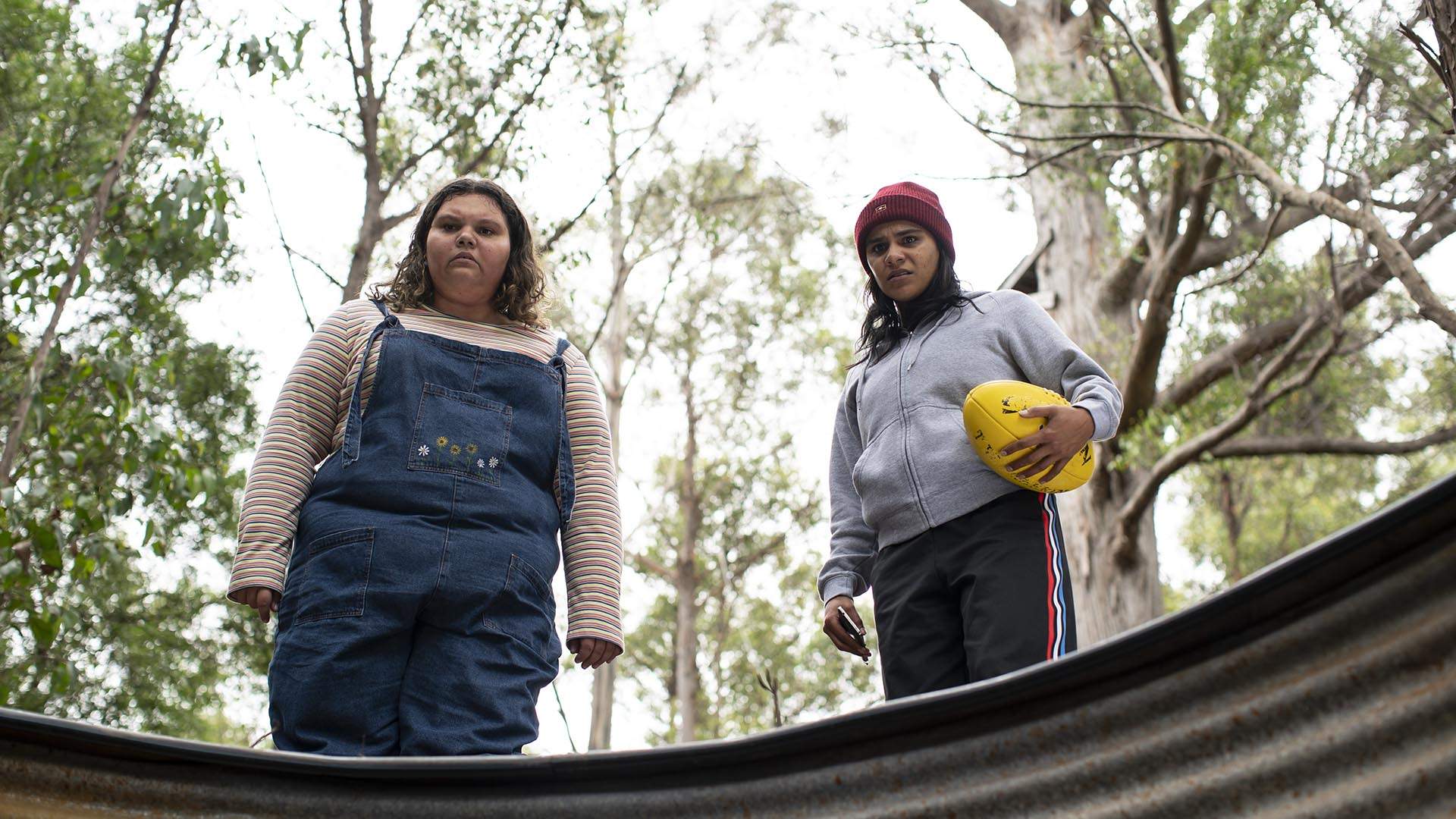
McLennan: "And you told me to watch Broadchurch, and I thought it was a comedy because Olivia Colman was in it and I knew her from comedy. So I'm like 'oh, it's a comedy'. So I strapped myself in to watch this funny comedy show. And I'm like 'yeah, this is not a comedy'.
But we thought 'what if we did take a show that had that small town, lots of secrets, lots of characters, and you just nudge the comedy". You just nudge the needle up a little bit.
We had the idea just after we made The Katering Show. We were pitching Get Krack!n overseas, and we would do the spiel about Get Krack!n and then people would sometimes say 'do you have any other ideas?'. We'd just throw in the Deadloch idea as this last-minute 'we've also got this other show with the working title Funny Broadchurch'. And people just really grabbed onto it.
McCartney: "Like, they got it."
McLennan: "So we knew that it had legs. We made Get Krack!n and then we thought we'd pitch this other show, and luckily Amazon Prime were ready to jump on board with this."

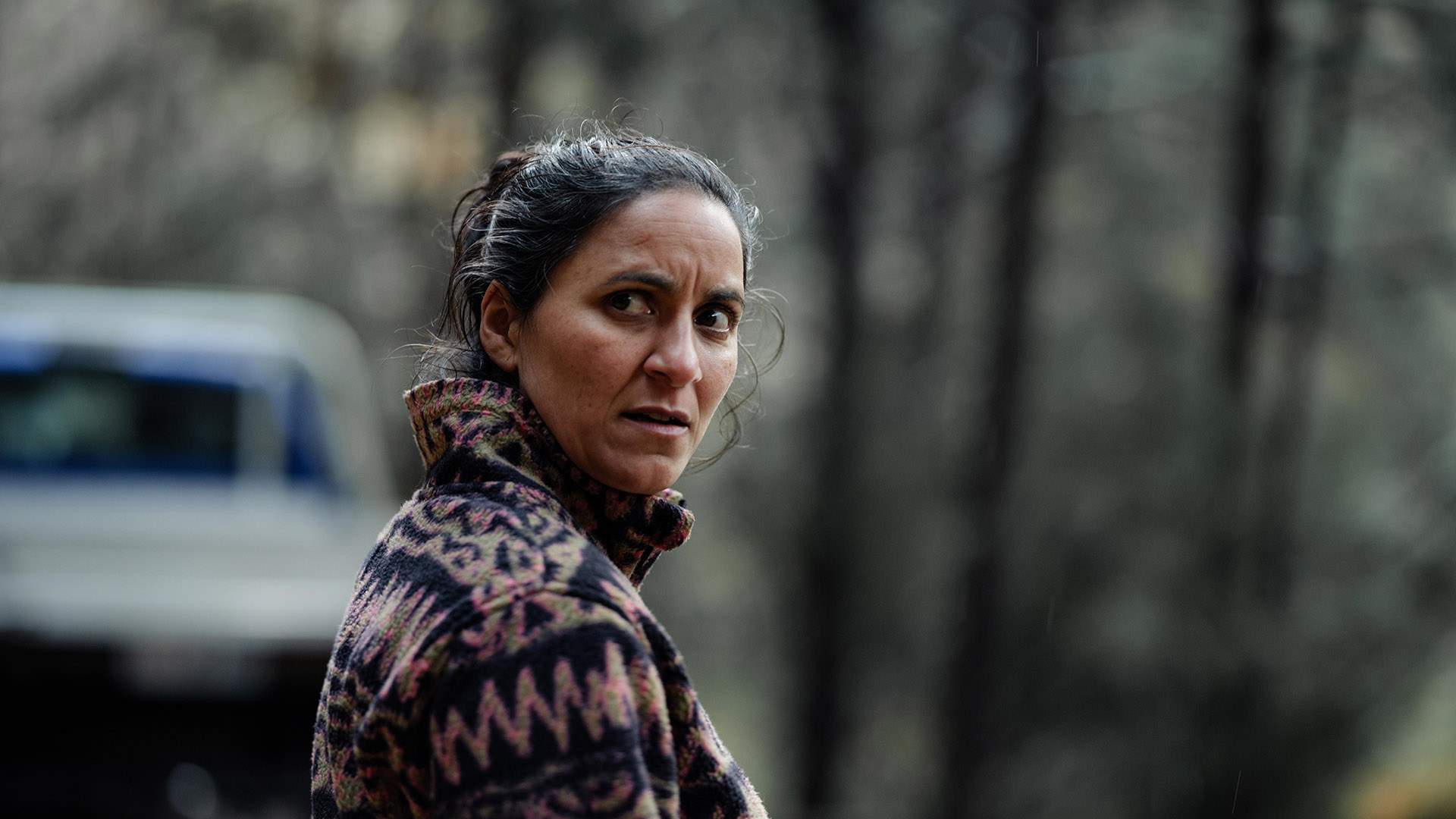
ON MAKING A COMEDIC MURDER-MYSTERY THAT ALSO WORKS AS A MURDER-MYSTERY
McCartney: "It wasn't actually [the initial plan]. When we first conceived of it, this was at The Katering Show, that's where we were at in terms of what we were working on. And we did originally conceive of it as being a 30-minute show. And then, we just grew in confidence and ambition as we got into Get Krack!n — and then by the final season of Get Krack!n, we started to really experiment with using that interplay of something dark, then something funny.
I think that informed us and bolstered us — that may not be a word — in our confidence and our ability to to be able to pull off something like this.
And also having that experience. We'd done a few series. And the things we're trying to emulate, they are a lot longer because of the moodiness and the cinematic quality of it — and you just need more time.
And because we're not in it — personally, I'm a terrible actor, so there's only so much I can do — but if you get someone like Kate Box or Madeleine Sami or Alicia Gardner, or anyone like that in your show, you can ask them to do a lot more with the characters. You can actually have proper characters."
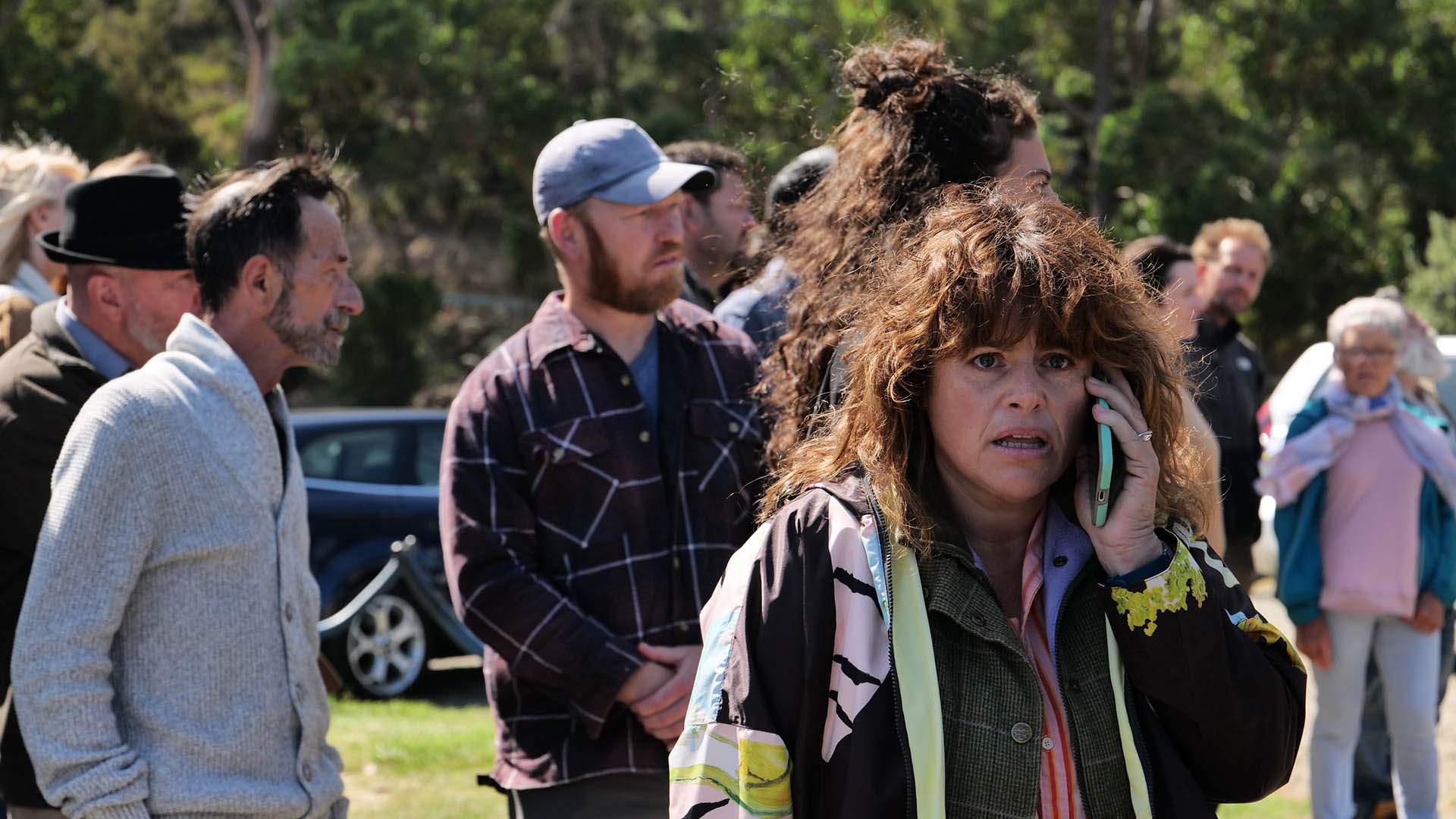
McLennan: "We wanted the space to tell the story and to do it justice, and to do in a way that felt like it was a rich, rewarding experience for the audience.
I think around the time that we going through this creative process with it, Killing Eve had just come out — and I don't know if it did necessarily break the mould, but it made it pretty clear to us that you could tell a story that was longer than half an hour and there was an appetite for that from the streaming services as well."
McCartney: "It was the appetite, really. Because we'd already thought about it, we'd already gone 'oh, I think I think this is how it needs to be, this is the kind of show we're looking at, I think we want it to be a proper show'. But the fact that people were watching it and responding to it, there was a precedent that we could go 'people will hang in there'."
McLennan: "It certainly made us — when we knew that we had the hour up our sleeve, it's like 'well, we'd better made this crime story really good'."
McCartney: "It's a lot. It has to be interesting. Because people aren't going to watch something for an hour if they don't care about the characters, if there aren't actual stakes. You can't just do cop jokes. You can't sit above it and laugh, going 'aren't we clever'."
McLennan: "You've got to be invested in it. And play the stakes of the crime."

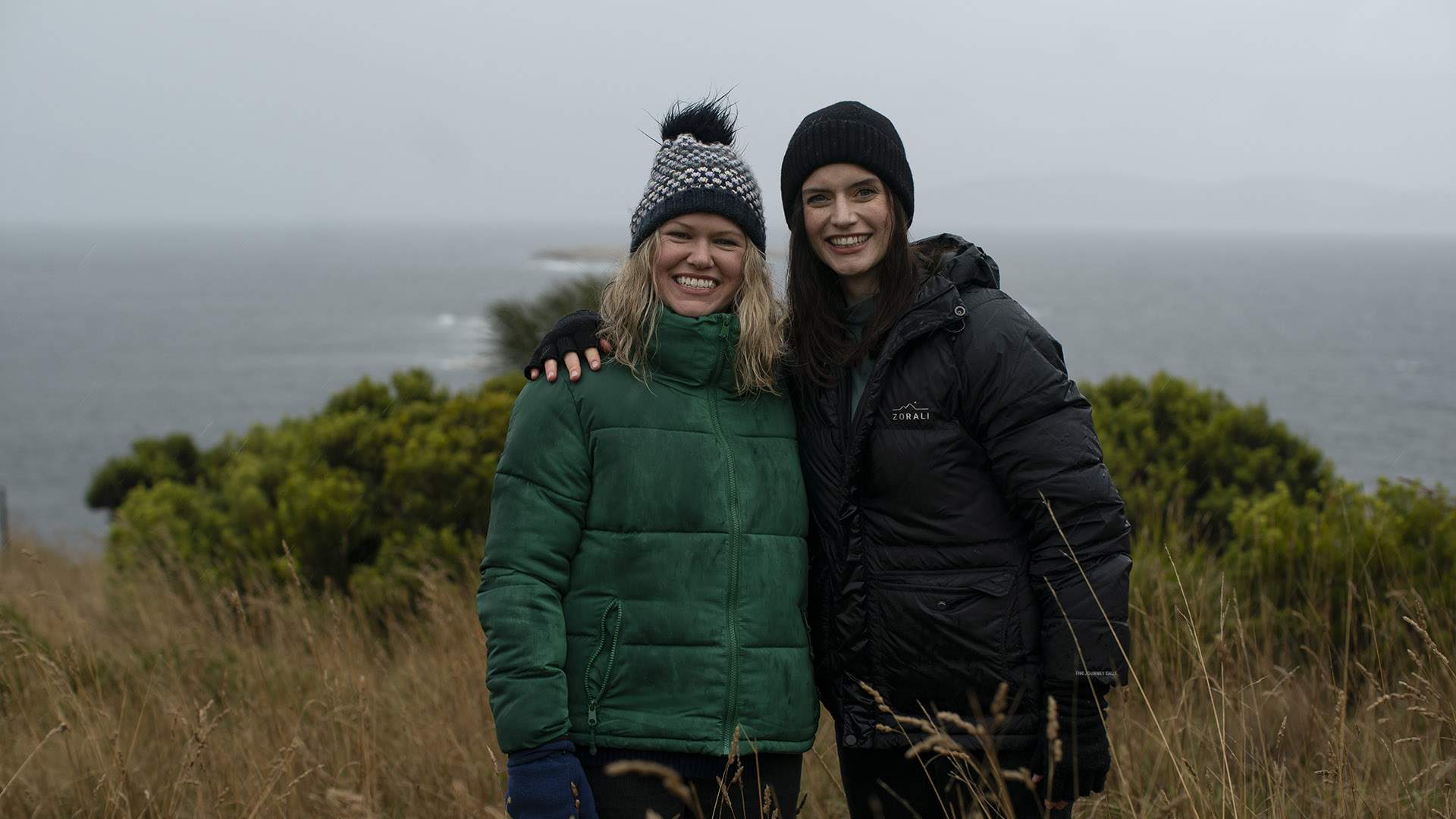
ON DECIDING NOT TO APPEAR ON-SCREEN
McCartney: "With Get Krack!n, by the end it was a challenge to have the kind of control over what we were doing that that we like to have, and to make sure that our voice is all-encompassing, and also be on screen. It's a very different brain, and you necessarily have to kind of let things go by the wayside if you're in that role — if you're trying to do those two roles together."
McLennan: "I remember being on the couch when we were filming Get Krack!n, and I had my phone and I was answering emails, and then we'd have to go for a take and I'd shove the phone under…"
McCartney: "Always shoving it under our legs."
McLennan: "And it just felt like the acting was getting in the way of the other job."
McCartney: "And we wanted to do the other other job more, because we were pretty done with being on camera as it was."
McLennan: "I think audiences were pretty…"
McCartney: "They were probably pretty done with us as well."
McLennan: "But we did cast ourselves in a cameo in the show. And we filmed that cameo."
McCartney: "Probably about half a day, I'd say. So not only did we spend half a day on it, like the production spent half a day filming our cameo, but we also took time out of our personal, very busy showrunner schedule, to do it. So it was like a loss in two ways."
McLennan: "Because we were watching rushes, and assembly edits were happening as we're going, we got to see that scene pretty quickly in the edit — and we were so bad that we cut ourselves and recast."
McCartney: "So it does exist, but it's in the vault. It's in the Amazon vault. It's in one of those seed things that are in Antartica."

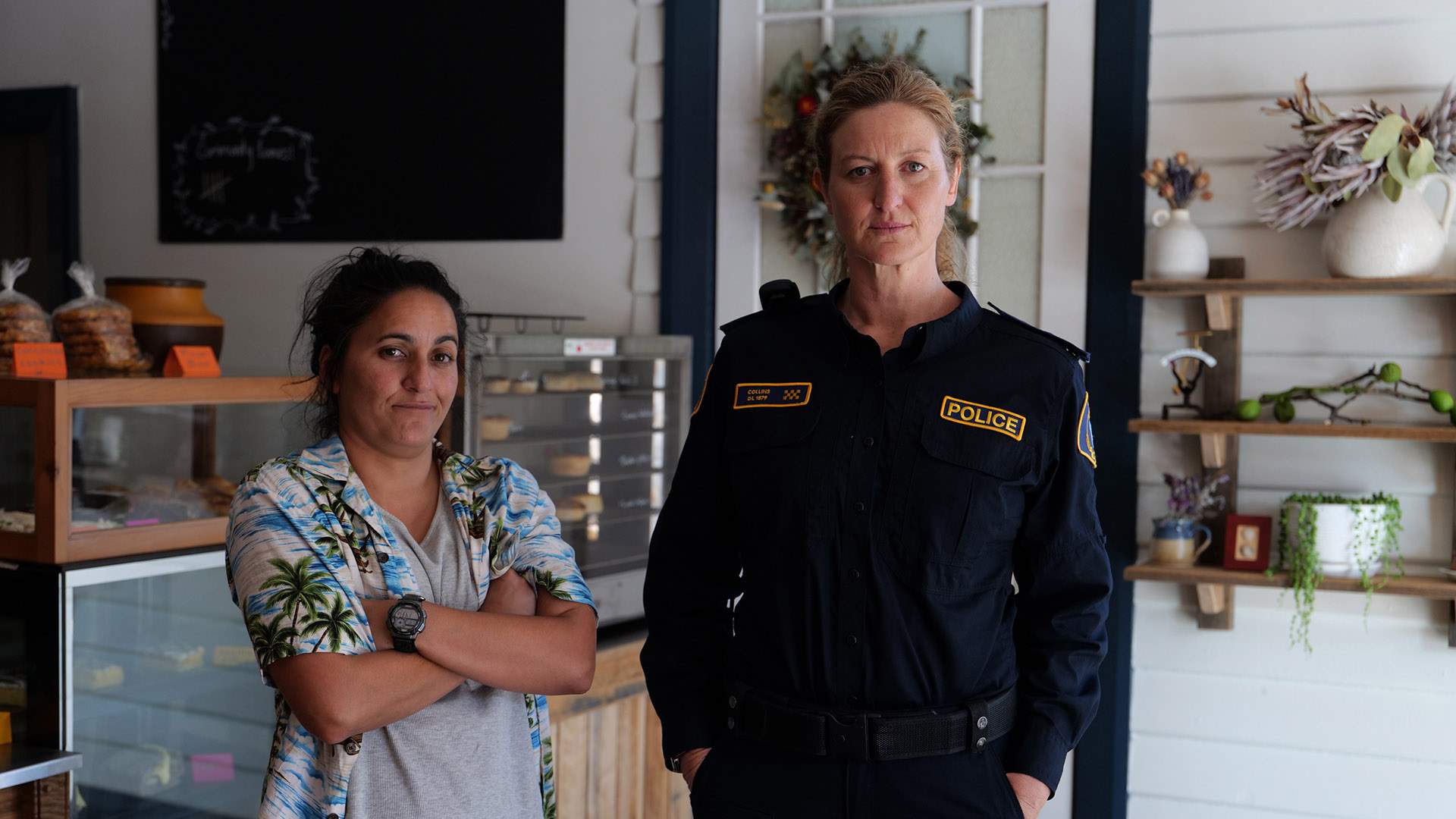
ON CASTING KATE BOX AND MADELEINE SAMI
McCartney: "Mads was actually a writer on the show. We knew her from quite a way back. We knew she's an extremely funny physical comedian and we've been fans of hers for ages, and obviously we've been massive fans of Kate Box as well."
McLennan: "The whole casting process was done over Zoom. I mean, interestingly, we were working with Mads writing scripts with her when the audition process was happening, but we pretended that we didn't know that we were getting her into this."
McCartney: "We were secretly in love with her and really hoped that she would play this part."
McLennan: "We wanted to keep things very separate, because obviously if we didn't cast her, then that would maybe be a little bit awkward. So we're like 'let's just keep this as two separate streams'.
She's like 'guys, did you know I've got an audition?', 'And we're like 'great!'. And the more we worked with Mads, the more that we could see that she was a pretty good fit."
McCartney: "In fairness, she was a perfect fit.
Setting down a self tape at the best of times is the pits, and really one of the key reasons why I stopped being a performer — but, but, doing it via Zoom, auditioning over zoom…"
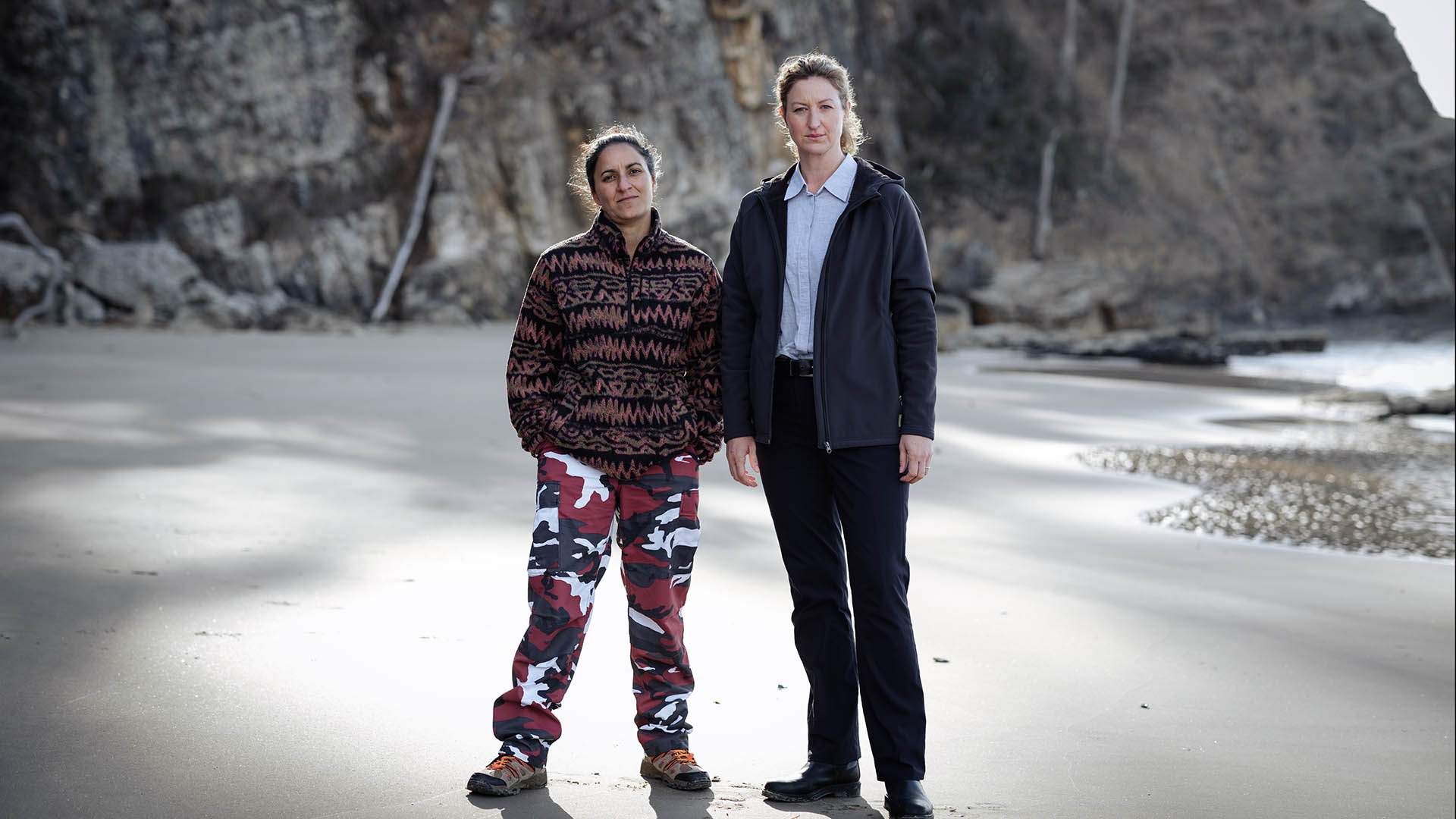
McLennan: "So Mads and Boxy had both done their separate reads of their characters, and then we got them to do a chemistry test — which again, you can imagine how we that is over Zoom."
McCartney: " Zoom chemistry, just you can feel it pinging off the screen, can't you?"
McLennan: "But you kind of could with those two."
McCartney: "You could, yeah."
McLennan: "I remember that day of getting them to do the callback, and to do these scenes together. It was like this immediate calm came over us, like 'this is going to be okay'."
McCartney: "Yeah, this is going to be really good."
McLennan: "Yeah, they're really good."
McCartney: "Boxy is so fucking smart — not the Mads isn't — but Boxy is so smart, and so good at her job. On the page, you don't necessarily see that Dulcie is as funny as she is. And she just got it. So it was the moment she started saying those words, we were like 'not only is this what we hoped the character would be, but it's so much more'.
She can do anything, so it seems a bit cheeky to be like 'hey, in this comedy, can you be the straight woman?'. But we needed someone that good at comedy and drama to play that part because everyone else can be a bit silly, but we needed someone to have the stakes all the time, because the audience needs that person."

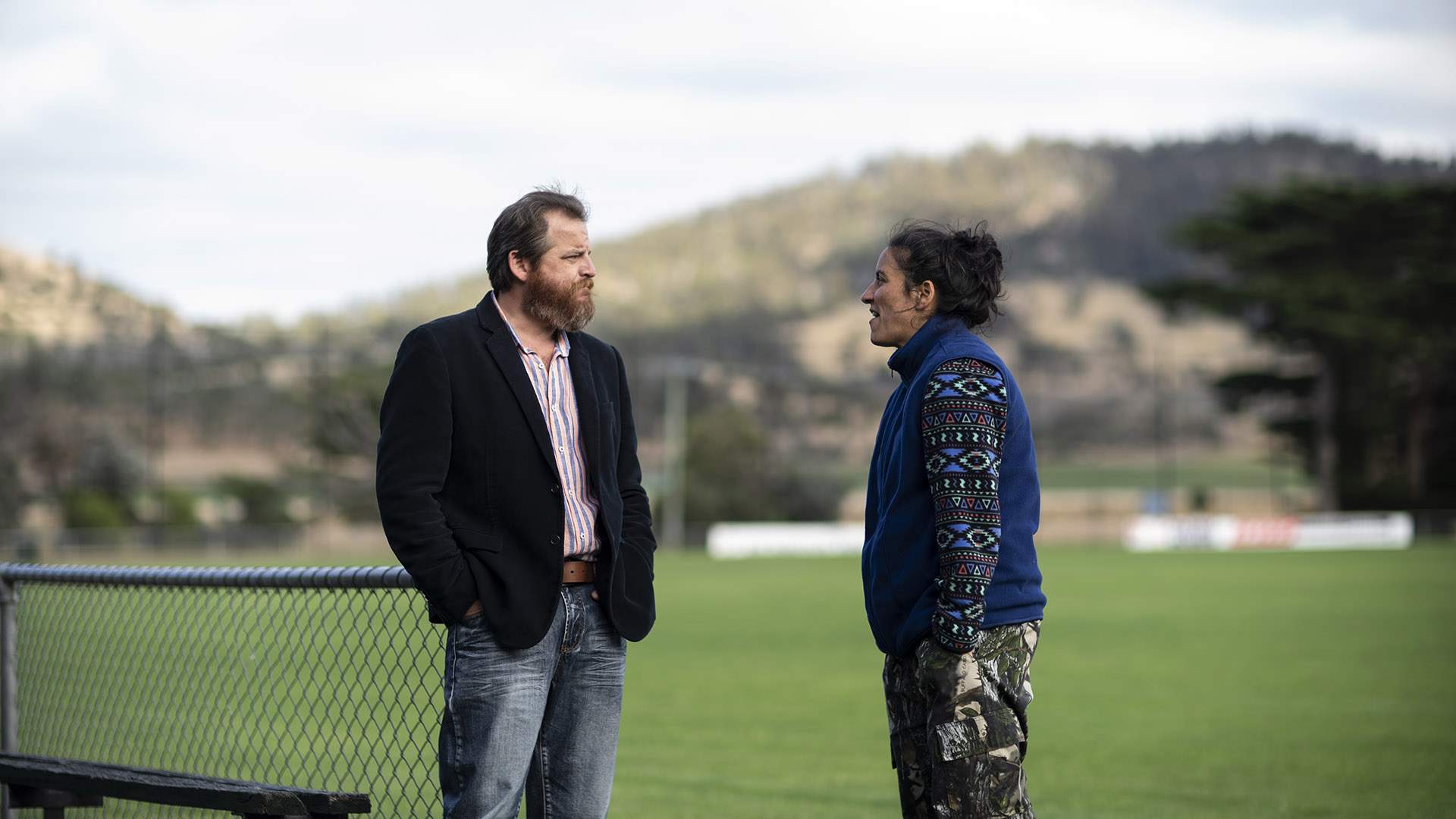
ON KEEPING DEADLOCH'S DIALOGUE UNIQUELY AUSTRALIAN
McLennan: "To be honest, we wrote all of the scripts and we did not receive a note on the language in the scripts. And then, just as we're going through the process of getting the show happening — you go through this process where people look over everything, just to make sure that everything's okay — there was just a question on the the volume of swearing. And there is a lot.
It opened up a conversation, so we responded to that with what's now known as The Cunt Essay. Our setup director Ben Chessell wrote a thesis essentially on Australians' relationship to the word cunt and other swearing."
McCartney: "The local usage of it, and how that differs from overseas usage of it. And how, within this context, it's actually not really even a swear word — in fact, it can be a very nice term. And it's used in advertising campaigns!
So we just talked about it in its context in the Australian vernacular, and its cultural context. And also, I think he talked about how it speaks to Australianness as well, that we've taken this word — there's no hierarchy, there aren't bad words, we're not as puritanical because we don't have that secretly underpinning our constitution and our heads of government.
He also then tied it into something else, he was talking about reclaiming it — which was a bit more of a stretch, I would say, if we're honest about it, and I think he knew it was a bit of a stretch. But it was very wordy. It was about seven or eight pages."

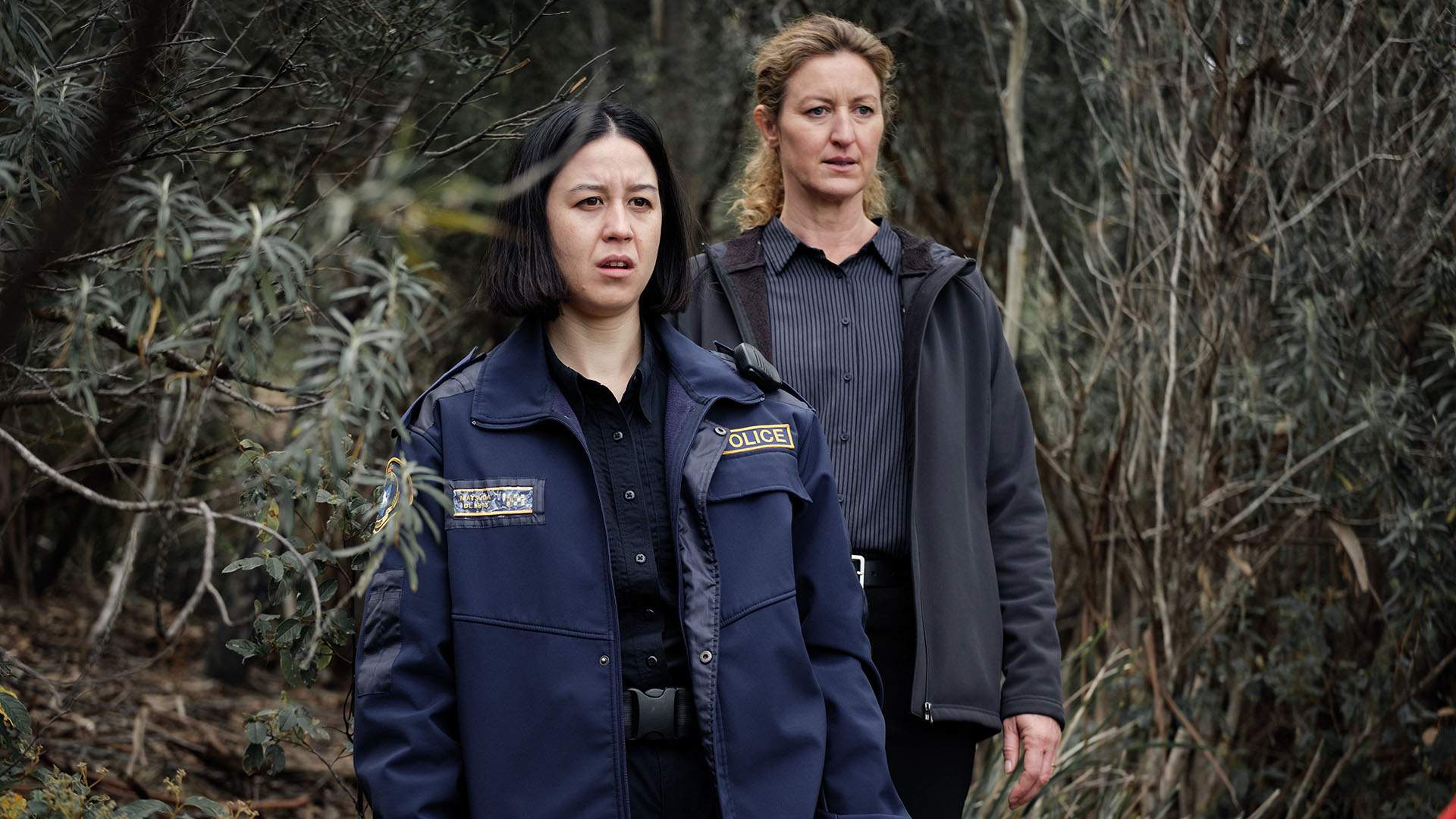
ON MAKING MORE SEASONS OF DEADLOCH
McCartney: "You always think about things being more than one series, but we'd always thought of it as being an anthology series. So, retaining some of the characters and moving them to a different location, probably — it was always going to be set around Australia.
So, that's the hope. That's the plan. That's the secret mutterings between us."

Deadloch streams via Prime Video. Read our full review of season one.
